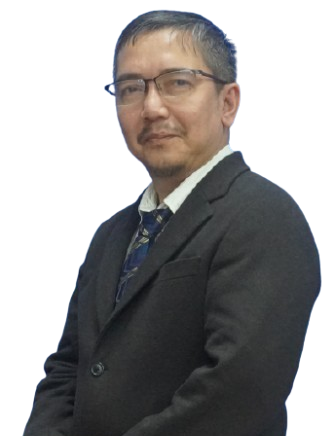POSTGRADUATE
Faculty of Civil Engineering
PEAW
DOCTOR OF PHILOSOPHY
The Master of Engineering (Civil) program at Universiti Teknologi Malaysia aims to enhance students opportunities to expand their knowledge and skills in addressing multidisciplinary problems in civil engineering. The program encompasses a wide range of courses, including structural engineering, geotechnical engineering, hydraulics and hydrology, transportation and highway engineering, environmental engineering, and construction management. Additionally, students are trained to undertake research projects in various civil engineering fields.
Programme Specification
|
1. Programme Name |
Masters of Engineering (Civil) |
||
|
2. Final Award |
Masters of Engineering (Civil) |
||
|
3. Awarding Institution |
UTM |
||
|
4. Teaching Institution |
UTM |
||
|
5. Professional or Statutory Body of Accreditation |
MQA |
||
|
6. Language(s) of Instruction |
English |
||
|
7. Mode of Study (Conventional, distance learning, etc) |
Conventional |
||
|
8. Mode of operation (Franchise, self-govern, etc) |
Self-governing |
||
|
9. Study Scheme (Full Time/Part Time) |
Full Time |
Part Time |
|
|
10. Study Duration |
Min : 3 semesters Max : 6 semesters |
Min : 4 semesters Max: 8 semesters |
|
Programme Educational Objectives (PEO)
PEO1. Mastery of knowledge and competency in advanced areas of Civil Engineering.
PEO2. Professionalism and high standards of ethical conducts within organization and society.
PEO3. Responsive to changing situations by continuously acquiring new knowledge and skills.
Programme Learning Outcomes (PLO)
|
13. Programme Outcomes |
|||
|
Code |
Intended Learning Outcomes |
Teaching and Learning Methods |
Assessment |
|
PLO 1 |
Advanced Knowledge: Synthesize, critique, apply, and extend in-depth relevant knowledge independently using innovative techniques, tools, and skills in the field of Civil Engineering as a basis for research to produce new ideas and solutions. |
Seminars, laboratory works, directed reading, independent study, active learning, and computer hands-on sessions. |
Experimental and fieldwork, laboratory report, survey |
|
PLO 2 |
Cognitive Skills: |
Project supervision, laboratory work, directed reading, simulation exercises, independent study, and problem-based learning. |
Seminar report, written research proposal, thesis, and publication |
|
PLO 3 |
Practical Skill: |
Project supervision, lectures, tutorials, laboratory works, directed reading, simulation exercises, independent study, and problem-based learning. |
Experimental and fieldwork, laboratory report, survey |
|
PLO 4 |
Interpersonal Skills: |
Doctoral dissertation and presentation, independent study. |
Written research proposal, thesis, and publication |
|
PLO 5 |
Communication Skills: |
Doctoral dissertation and presentation, independent study. |
Oral presentation, written report |
|
PLO 6 |
Digital Skills: |
Doctoral dissertation and presentation, independent study. |
Experimental and fieldwork, laboratory report, survey |
|
PLO 7 |
Numeracy Skills: Demonstrate skills in designing, critical evaluation, and analyzing numerical and graphical data using quantitative or qualitative tools to support and enhance research activities. |
Project supervision, laboratory work, directed reading, simulation exercises, independent study, and problem-based learning. |
Written research proposal, thesis, and publication |
|
PLO 8 |
Leadership, Autonomy & Responsibility: Demonstrate leadership, professionalism, and management skills, and take full responsibility for own work, and significantly for others in the research organization |
Doctoral dissertation and presentation, independent study. |
Oral presentation, written report |
|
PLO 9 |
Personal Skills: Demonstrate the ability to manage and enhance own self and if necessary, be accountable for the overall management of one’s research organization and professional development |
Doctoral dissertation and presentation, independent study. |
Oral presentation, written report |
|
PLO 10 |
Entrepreneurial Skills: Develop potential commercialization research output |
Doctoral dissertation and presentation, independent study. |
Oral presentation, written report |
|
PLO 11
|
Ethics & Professionals Skills: Demonstrate adherence to legal, and professional and contribute to the development of ethical sound codes of practice |
Doctoral dissertation and presentation, independent study. |
Oral presentation, written report |
Curriculum Structure
Entry Requirements
- A Master’s Degree from Universiti Teknologi Malaysia or any other Institutions of higher learning recognised by the Senate; or
- Other qualifications equivalent to a Master’s degree and experience in the relevant field recognised by the Senate; or
- Candidates who a currently registered in a Master’s Degree programme at Universiti Teknologi Malaysia, and approved by the Graduate Studies Committee of the respective faculty and the Senate.
- An international student should satisfy the English language minimum requirement of TOEFL score of 600 or IELTS band 6.0, or equivalent. A local student must produce a satisfactory score from MUET.
- At least one member from the faculty who has at least a Doctoral degree in the field of study is qualified and willing to supervise the candidate.
- Pass the health, financial and other requirements as specified by the university.
Study Plan
Career Opportunity
Brochure
Tuiton Fees

Programme Coordinator
Assoc. Prof. Ir. Dr. Mohd Azreen Bin Mohd Ariffin
Email: mohdazreen@utm.my
